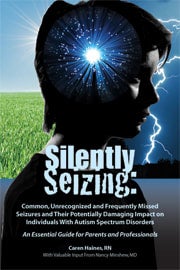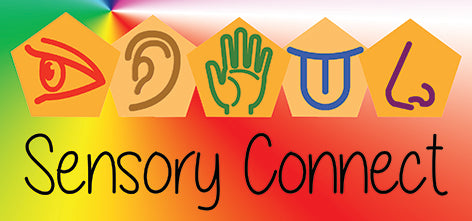Sensory Connect
Silently Seizing: Common, Unrecognized and Frequently Missed Seizures and Their Potentially Damaging Impact on Individuals With Autism - Caren Haines
Silently Seizing: Common, Unrecognized and Frequently Missed Seizures and Their Potentially Damaging Impact on Individuals With Autism - Caren Haines
Couldn't load pickup availability
As many as 30% of all children and young adults with autism spectrum disorders may have undiagnosed seizure disorders, to a great extent because they are difficult to diagnose and due to a lack of awareness and understanding. Silently Seizing by Caren Haines, RN, and valuable input by Nancy Minshew, MD, is a breakthrough book that explores what most doctors won't tell you - that in some cases the symptoms of autism are caused by seizures, undetectable, with standard diagnostic tools.
At age 2, author Caren Haines' son was diagnosed with autism. By the time he was 12, his diagnosis didn't account for his uncontrollable aggression, the acrid smells that lingered in his mind and the odd voices that screamed at him from inside his head. By the time he was 18, his out-of-control behaviour mirrored a mood disorder with psychotic features.
Silently Seizing begins with a close-up look at this family's journey and examines a disorder that cannot always be identified in a clinical setting. Intersecting at two medical subspecialties, neurology and psychiatry, the child who has autism and partial seizures is at a serious disadvantage. By inadvertently allowing children's brains to "silently seize," we are robbing children of their ability to function normally. When treated early with anti-seizure medications, on the other hand, many children show amazing gains in expressive language and comprehension. Many begin to speak and learn as many troubling behaviours begin to disappear. Even more important, many children lose their diagnosis of autism.
Backed by up-to-the-minute research, this must-read book includes sections on what autism is, the seizure-autism connection, tips for diagnosing and treating seizures, as well as how to better understand children's behaviour.
Share

 is here! Shop now, pay later in 4 easy installments
is here! Shop now, pay later in 4 easy installments

